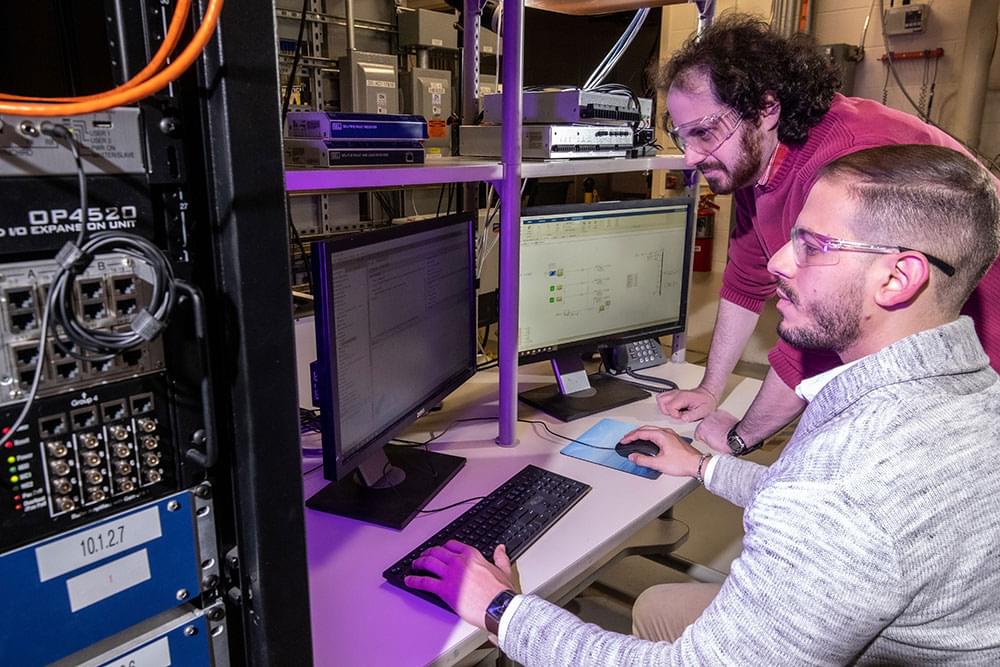In partnership with NASA, Sandia researchers design reliable and resilient microgrids that could sustain astronauts, mining and fuel processing on the moon.



Performed by Moxie — the Mars Oxygen In-Situ Resource Utilization Experiment — the strategy definitely incited hope for extraterrestrial survival. Future human missions could take versions of Moxie to Mars instead of carrying oxygen from Earth to sustain them.
But, Moxie is powered by a nuclear battery onboard.
“In the near future, we will see the crewed spaceflight industry developing rapidly,” said Yingfang Yao, a material scientist at Nanjing University.
SpaceX’s Crew Dragon will streak through Earth’s atmosphere
“Teams from @NASA & @SpaceX now are targeting #Crew3 undocking at 1:05 am Thurs, May 5 from @Space_Station. Splashdown off of Florida’s coast is planned about 12:37 am Fri, May 6. The new undocking time allows for shorter phasing & more time to review the latest forecast info,” said Lueders, in the Wednesday tweet.
SpaceX’s Crew-3 was lofted to space atop a Falcon 9 rocket on November 11, 2021, and then docked with the International Space Station (ISS) the same day. Aboard the vehicle are three NASA astronauts — Kayla Barron, Thomas Marshburn, and Raja Chari — and a single astronaut from the European Space Agency (ESA) — Matthias Maurer.

The U.S. Department of Treasury today sanctioned cryptocurrency mixer Blender.io used last month by the North Korean-backed Lazarus hacking group to launder funds stolen from Axie Infinity’s Ronin bridge.
In the wake of the attack, Sky Mavis (the bridge’s creator) revealed that hackers breached the Ronin bridge on March 23 to steal 173,600 Ethereum and 25.5M USDC tokens in two transactions worth $617 million at the time, the largest cryptocurrency hack in history.
The previous most significant theft of cryptocurrency was the $611 million Poly Network hack in August 2021.

In recent years, developers have created a wide range of sophisticated robots that can operate in specific environments in increasingly efficient ways. The body structure of many among these systems is inspired by nature, animals, and humans.
Although many existing robots have bodies that resemble those of humans or other animal species, programming them so that they also move like the animal they are inspired by is not always an easy task. Doing this typically entails the development of advanced locomotion controllers, which can require considerable resources and development efforts.
Researchers at DeepMind have recently created a new technique that can be used to efficiently train robots to replicate the movements of humans or animals. This new tool, introduced in a paper pre-published on arXiv, is inspired from previous work that leveraged data representing real-world human and animal movements, collected using motion capture technology.



Tesla has released its 2021 Impact Report, and it revealed that the company is making huge strides in its efforts to help accelerate the world’s shift to sustainable energy.
From the people it employs to its supply chain and products, Tesla is transforming itself into an entity that is cleaner, more efficient, and more responsible than ever before.
Tesla’s website focused on four notable portions of its 2021 Impact Report, namely the company’s people, environment, supply chain, and products. In each of these topics, Tesla highlighted the steps it took to better itself while setting a standard for the automotive industry as a whole.

Creating a battery that can withstand repeated cycles of heating and cooling is no small feat. Temperature fluctuations cause the battery to expand and contract, and the researchers had to identify resilient materials that could tolerate these changes. “What we’ve seen before is a lot of active research to make sure you do not have to go through that thermal cycle,” says Vince Sprenkle, a strategic advisor in energy storage at PNNL and a co-author of the new paper. “We’re saying, ‘We want to go through it, and we want to be able to survive and use that as a key feature.’”
The result is a rechargeable battery made from relatively inexpensive materials that can store energy for extended periods. “It’s a great example of a promising long-duration energy-storage technology,” says Aurora Edington, policy director of the electricity industry association GridWise Alliance, who was not involved with this research. “I think we need to support those efforts and see how far we can take them to commercialization.”
The technology could be particularly useful in a place such as Alaska, where near-constant summer sunlight coincides with relatively low rates of energy use. A battery that can store energy for months could allow abundant summer solar power to fulfill winter electricity needs. “What is so attractive about the freeze-thaw battery is that seasonal shifting capability,” says Rob Roys, chief innovation officer at Launch Alaska, a nonprofit organization that works to accelerate the deployment of climate technologies in the state. Roys hopes to pilot the PNNL battery in a remote part of his state.